Fulfilling a Legacy: A Texas maker crafts superior olive oil from varieties grown on her Asherton ranch
By Nicole Newman // Photos courtesy of Kerry Thornhill Houston
“The blessing for me and anyone in agriculture is to be able to see your vision come to life and introduce it to people. If you have that vision, that feeling, reach out, work with your community, work with local associations, never be afraid to ask for help and support others as they’re coming up. ”
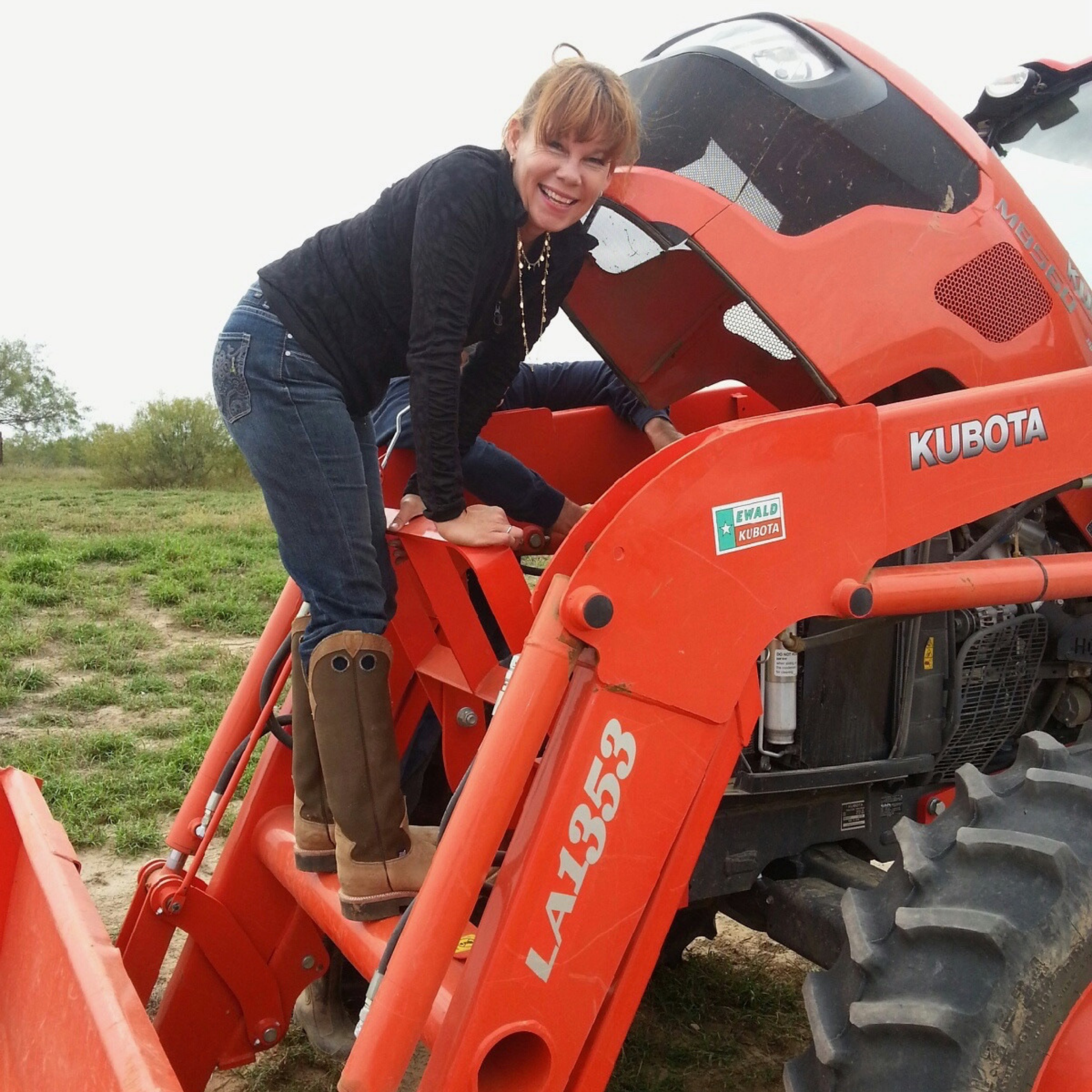
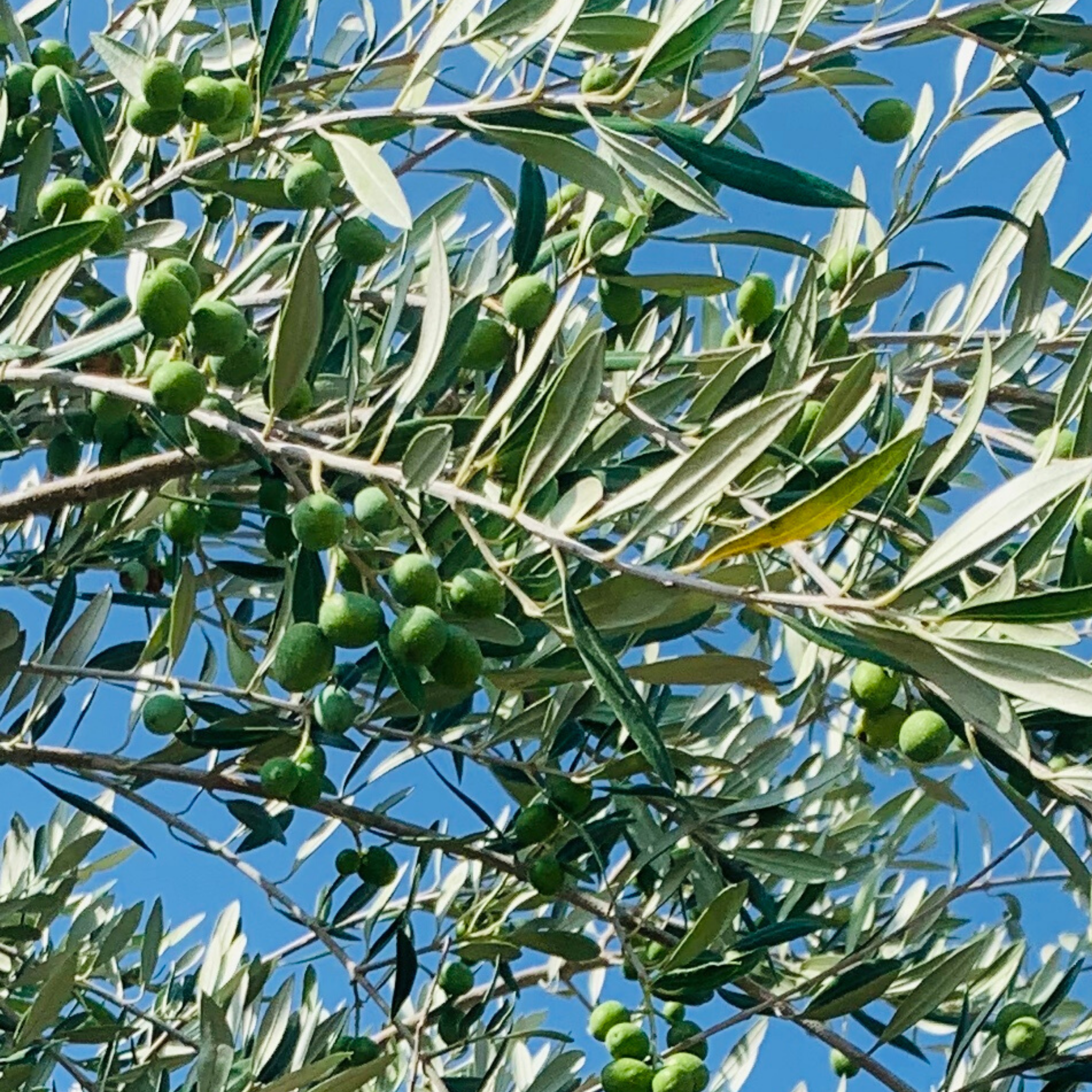
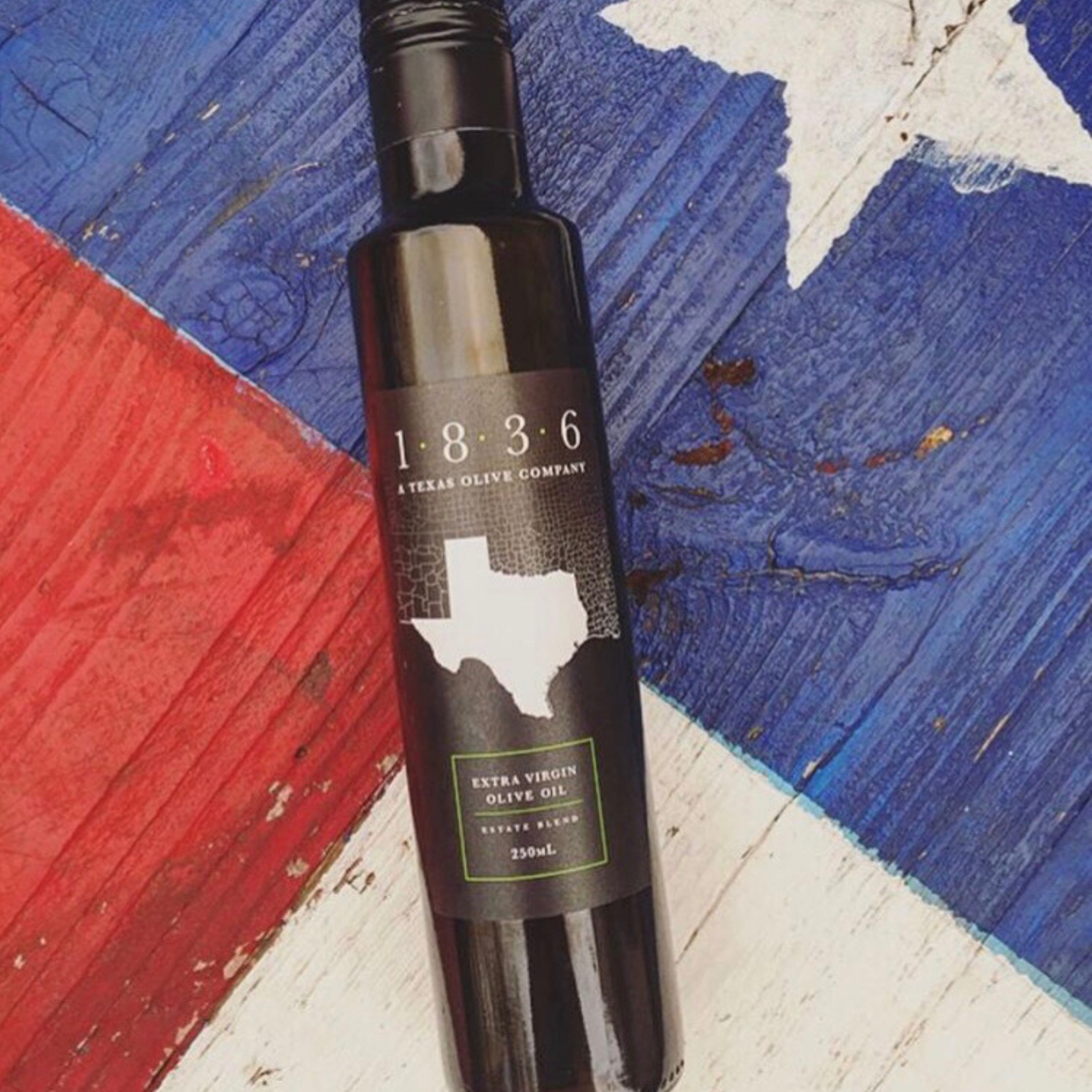
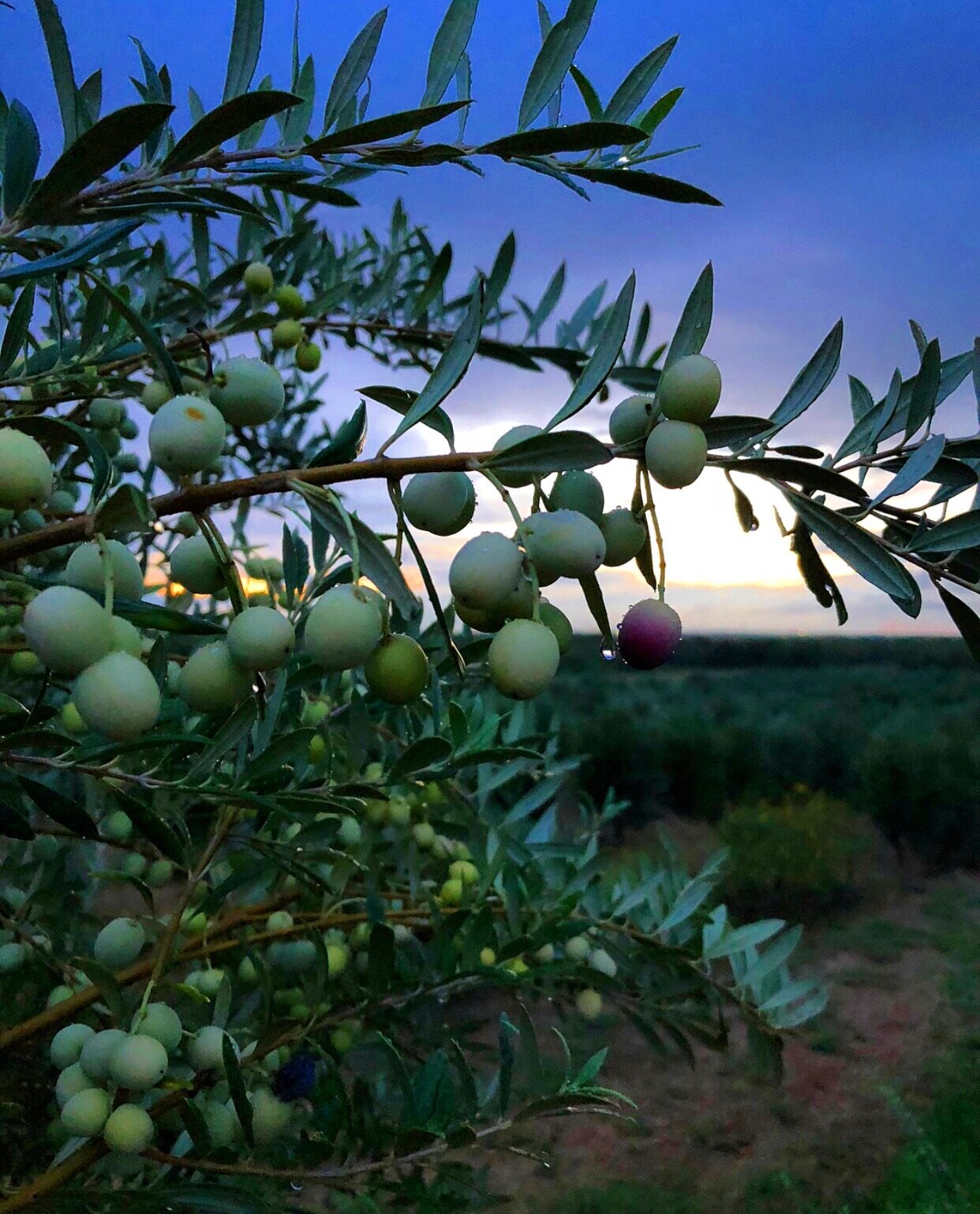



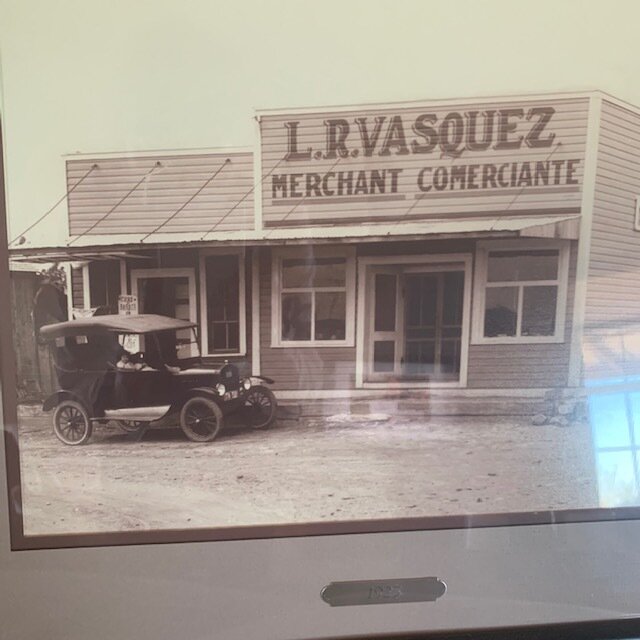
After years of working in investment banking for the oil and gas sector, Kerry Thornhill Houston decided to focus on her family legacy and build a different kind of Texas oil company. Houston and her brother Jeb launched Polo Legacy Partners, LLC, a business venture named after her grandparents, who owned the town’s first grocery store. Eventually, Polo Legacy Partners became 1836: A Texas Olive Company, paying homage to Texas’ history and agriculture.
For the past three years, Houston has been steadily expanding 1836: A Texas Olive Company into a top-quality brand praised by chefs, gourmet stores and the Texas public.
Nicole Newman: Can you tell me about the ranch’s history and background?
Kerry Thornhill Houston: My mother’s family has been here in Dimmit County for 100 years. They had a small town store, like the Walmart of today, and also a ranch. Any time I could spend time with my grandparents was a thrill. I got to jump in the back of the pickup truck and drive to the ranch. They had cattle and it was a thrill to go out to be able to pet them, feed them, name them. It’s something that most people living in the city don’t get to do. It’s a great exposure to nature. You’re not afraid of rattle snakes, everything has thorns. The escape to nature is vital. It’s precious. It’s been a vital part of my happiness over the last few years is seeing these [olive] trees grow. I consider them my children. I don’t like trimming them, it’s almost painful to do some of the things you have to do to maintain them. But it’s just amazing, the olive tree is amazing.
When I was young, the store was still somewhat active. I have a beautiful photo of the store (pictured here) and it’s got a Model T Ford in front of it and my aunt is sitting in it. The date on that was 1923. The legacy my grandparents had was making sure people had shoes and jeans; they also had cheeses and food.
NN: How did the olive grove begin?
KTH: Initially, getting into the olive business, we saw an orchard being planted a few miles away from our property in Asherton and we got excited about the idea of growing something here. At the time, my brother and I thought it would be a great idea to try to grow something on our family’s property. We later decided though that that wasn’t a good idea in case there were sibling problems down the road, so we found a different plot of land to start the business on. (Check out this YouTube video to see the orchard built from the ground up!) Initially our business was Polo Legacy Partners, LLC after my grandfather. I always imagined the brand was going to be 1836, which was the year Texas won it’s freedom from Mexico. It seemed appropriate to name it something that was very, very Texas. I’m really proud of the look of the brand and the fact that I was able to farm four varieties of olives and create a special blend. It’s special not just in its flavor profile but in its chemistry. I was fortunate to have some amazing store owners and chefs talk about it, be proud of it and then social media just made it take off. It was something I could have never planned for.
NN: How did you hone your skills and how did you get the idea to combine four different olive varieties (Arbequina, Mission, Picual and Tosca)?
KTH: I was advised initially not to plant only one varietal. In hindsight, that was probably the best thing I could have been told. The advice initially was not to just plant Arbequina because there’s already so much of that in the market. It’s an ideal olive tree and good fruit. In choosing the other varietals, I’ve always loved Mission trees and oils. I wasn’t that familiar with Picual and Tosca but it just worked out. Not to talk about wine necessarily, but it’s like a blend in wine. It’s subjective.
NN: Tell me about the process.
KTH: I’ve been fortunate enough to have two companies mill for me. We don’t have enough infrastructure in the state to mill. Its capital intensive to buy property, plant property. Many people have contacted me and didn’t realize all the infrastructure to plant. All of our olives are harvested at one time. It’s all milled at one time.
NN: One thing that sets 1836 apart is its chemical composition. Tell me about that.
KTH: I don’t think many people understand how important the chemistry is. The chemistry determines almost everything about your oil. Labeling is incredibly important. You have to meet a certain standard to label yourself extra virgin. The higher the polyphenol number, the more health benefits there are. So I like to highlight that. I’ve actually had people come up when I’m doing demos, and I can pull out my chemistry report. For me, it’s another level of transparency saying that this is a high-quality product. The chefs also like knowing what the chemistry is.
NN: On Makers Marketplace, you offer your traditional EVOO. Have you ever thought about creating other variations of this product?
KTH: Actually, I am. What I’m trying to do next is launch a chef’s blend. I’m going to have a blend that has Texas Cottonseed oil. With the bulk purchases that I have with chefs and hotels, it will bring the price down so they can use it on a more frequent basis. Right now, the legacy blend, is more of a finishing oil. It’s a bit expensive to cook with. So this is something I’m going to try to launch soon.
NN: Tell me about being a woman in agriculture. Is there anything you want other women who are thinking about going into agriculture to know?
KTH: I’d like other women to know that if I can do it with no farming experience of any kind, it can be done. [Be] willing to overcome your fears and insecurities around something new. That’s something that most women in agriculture have. They refuse to be intimidated. There are a lot of women who are more than capable of doing this… The blessing for me and anyone in agriculture is to be able to see your vision come to life and introduce it to people. If you have that vision, that feeling, reach out, work with your community, work with local associations, never be afraid to ask for help and support others as they’re coming up. Make sure that this kind of capital investment and farming effort is not wasted.
NN: In 2018, you landed a big partnership with Williams-Sonoma. Tell me about that. Did you reach out to them?
1836: A Texas Olive Company display in Williams-Sonoma Dallas.
KTH: I was doing demonstrations as part of the local program that Williams-Sonoma offered and they insisted I present this to corporate in San Francisco. I initially had a phone call and spoke to the managers at the store in Houston. I was told it was the third largest grossing store in the U.S. The three caveats [to applying] were you had to have a good story, you had to send your samples and you had to have a social media following. I’d just hit 2,000 followers on Instagram, which quickly grew to 7,000.
About 10 days after I submitted the story, the social media and the samples, I received an email from the corporate office asking me to be a part of the Williams-Sonoma family. I was actually on my tractor mowing and someone called and said you need to check your email. I was officially in the stores in September 2018. I do not intend to go national — I don’t have the product to go national, I am a boutique brand. But it really elevated the brand to be associated with such a nationally recognized gourmet store.
NN: What’s the next goal you want to tackle? Where do you see yourself in 5 years? 10?
KTH: I’d like to expand the orchard to keep up with demand. I’d like to have a little more support from distributors, too, so I can teach them about the product, work with them and not have to spend my time on the road, trying to market all the time. I’m talking to one or two right now who are helping me introduce it to businesses and restaurants. That’s been a gift. I’ve always said I do not want to be an overnight sensation because I want to organically build the brand. We’re three years old now and I think it’s pretty remarkable, especially in the olive oil world, where we are now.
NN: Why is the maker movement important to you?
KTH: I am small, and boutique. The maker movement allows someone like me and my brand to have an audience. If I wanted to try to create that, I don’t know how I could.
I was invited a year and a half ago to an event in Houston. Anytime the consumer can meet the maker, I don’t care whether it’s cheese or meat or olive oil, it’s incredibly valuable for the consumer to see who you are and build a personal relationship with you. Those type of things are priceless. For me, there’s no better reward to having someone talk to you and taste you and watch their eyes pop open. It’s priceless, and it validates everything that I’ve done.

